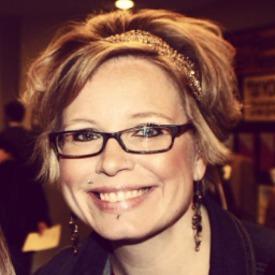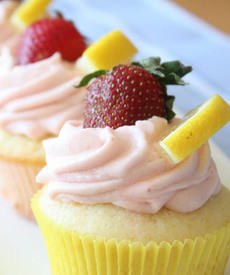Question about weighing vs measuring food

hmahoney74
Posts: 12 Member
As an example, when you calculate calories for broccoli...do you weigh it on a food scale? So 8oz would = 1 cup?
Or...do you measure it in an actual measuring cup?
Same with fruit, etc. I know that 8oz=1cup, but wasn't sure if that holds true in weighing all foods. Maybe I'm overthinking this
Or...do you measure it in an actual measuring cup?
Same with fruit, etc. I know that 8oz=1cup, but wasn't sure if that holds true in weighing all foods. Maybe I'm overthinking this
0
Replies
-
As an example, when you calculate calories for broccoli...do you weigh it on a food scale? So 8oz would = 1 cup?
Or...do you measure it in an actual measuring cup?
Same with fruit, etc. I know that 8oz=1cup, but wasn't sure if that holds true in weighing all foods. Maybe I'm overthinking this
Use the food scale you will get more accurate information. Liquids use the measuring cups0 -
You will be more accurate if you use the scale. Measure cup will get you close, but you will be off depending on the food and density.
Example: Compacted flour versus sifted flour will have different density; thus they will weigh differently and have different caloric value per cup.0 -
I place a bowl on my scale, zero it out, then add the food item into the bowl on the scale.0
-
Thank you for your help!0
-
I weigh all dry goods, measure liquids by volume (although I weigh some liquids too).0
-
As an example, when you calculate calories for broccoli...do you weigh it on a food scale? So 8oz would = 1 cup?
Or...do you measure it in an actual measuring cup?
Same with fruit, etc. I know that 8oz=1cup, but wasn't sure if that holds true in weighing all foods. Maybe I'm overthinking this
8oz of water = 1 cup
My general rule for weigh vs measure is the bigger the "particle" of food the more accurate the weight will be over measure. It is also a good idea to check the markings on liquid measuring cups at least once. I have found that some inexpensive liquid measures are not calibrated correctly. Weigh out 8oz of water and see where the level is in your measure cup. Some the liquid is just touching the line, some it is in the center of the line and some come to the top of the line.0 -
Always the scale. Way more accurate.
And don't mix up liquid and solid ounces.0 -
For me i weigh calorie dense food like meats nuts & cheeses. Weighing while technically more accurate, weighing feels like an extra step vs measuring cup *shrugs*. The difference between 85g of broccoli (1c) and 93.5g (10% more) is like 8.5 calories. At this point, for me, it doesn't seem like the time vs benefit of doing food scale for non-calorie dense food is there. I may change my tune if weight-loss slows but that's my theory now.0
-
Me too!I place a bowl on my scale, zero it out, then add the food item into the bowl on the scale. 0
0 -
I use a food scale0
-
It is nearly impossible to measure chunky food in a measuring cup: I weigh nuts, cheese, pita chips, grapes and other foods that are either calorie dense or weirdly shaped.
That said, I don't worry too much about broccoli. I sometimes buy the pre-washed broccoli, snow pea and carrot mix that comes in a bag. I steam it and divide it into portions, using the approximate measurement given on the package. It's such a small number that I don't worry too much about that.
I also weigh yarn, but that's another story entirely.0 -
I weigh out a serving based on the gram amount provided on the bag for a serving. The frozen broccoli I buy says 1 serving is 1 cup (85 grams). So I take a bowl, put it on the scale, zero the scale, and then add broccoli until I get to 85 grams.0
-
I always use a scale because I have found that the pendulum swings both ways sometimes you over estimate your calories using measuring cups while other times you underestimate.0
-
I have been weighing more and more but to me the difference in veg is so small that I generally just us a cup for that and only because I am lazy and if I go over unknowing on veg I don't really care ... but thats just me
 0
0 -
As an example, when you calculate calories for broccoli...do you weigh it on a food scale? So 8oz would = 1 cup?
Or...do you measure it in an actual measuring cup?
Same with fruit, etc. I know that 8oz=1cup, but wasn't sure if that holds true in weighing all foods. Maybe I'm overthinking this
8 fluid ounces is one cup. The actual weight of that will not be 8 ounces.
BTW, it is likely better to weigh in grams anyway. Most of the entries for raw foods like broccoli have a serving size 100 grams, and you can simply work from that with basic math skills. Also realize that when a nutrition label says 1 cup followed by weight measure, the weight measure is the accurate one, the 1 cup is an estimation of how much volume that weight measure will take. Same with things that say a certain number of slices or what have you, the weight amount is the accurate one, the others are but estimates of how much will likely be close to that weight.0 -
I was measuring instead of weighing for awhile and when I compared the two - measuring was off by about 200 calories a day and that's a big difference for me. So I was eating at maintenance.0
-
I weigh everything on the scale. For liquids, I use the ML or fl oz setting on my scale, but I know not all scales have those settings.0
-
I've been measuring, but just bought myself a scale & will be using that from now on - I can only assume that I will be much more accurate for here on!0
-
I weigh all dry foods and meats (prior to cooking) and use measuring cups for liquids. When I got my kitchen scale I learned why I was gaining weight so quickly. Peanut butter! I was using a measuring spoon; however, the peanut butter was piled on. When I used the scale for my PB I discovered that I was eating 2-3x amount I was supposed to be. Silly me. The scale is so much more accurate. What a sad day to find out one serving of PB is nothing but a tease! LOL0
-
8 fluid ounces is one cup. The actual weight of that will not be 8 ounces.
^ This. There are two commonly used ounces in the US and Liberia, the two places that still haven't adopted the metric system (the UK hasn't completely done so, but they've gone a lot further than the US).
A fluid ounce is a unit of volume. 16 oz. = 2 cups = 1 US pint (an Imperial pint is 20 oz., and there is no Imperial cup, just a half pint).
An ounce by weight is 1/16 of a pound, and at normal gravity on the surface of the Earth is equal to about 28.35 grams. (The gram is a unit of mass, not weight, but we really don't need to bring slugs into this discussion.)
16 fluid ounces of water at standard temperature and pressure weigh just over 16 ounces by weight (about 16.7 ounces); hence the expression that my dad taught me, "A pint's a pound the world 'round." (Not true, unfortunately, since an Imperial pint is 20 oz. and weighs 1.3 lb.) Because of this near equivalence, many people don't realize that the fluid ounce isn't the same as the ounce by weight. But they're different dimensions.
And then there's the troy ounce….0
This discussion has been closed.
Categories
- All Categories
- 1.4M Health, Wellness and Goals
- 395.9K Introduce Yourself
- 44.1K Getting Started
- 260.7K Health and Weight Loss
- 176.3K Food and Nutrition
- 47.6K Recipes
- 232.8K Fitness and Exercise
- 448 Sleep, Mindfulness and Overall Wellness
- 6.5K Goal: Maintaining Weight
- 8.6K Goal: Gaining Weight and Body Building
- 153.3K Motivation and Support
- 8.2K Challenges
- 1.3K Debate Club
- 96.4K Chit-Chat
- 2.5K Fun and Games
- 4.4K MyFitnessPal Information
- 16 News and Announcements
- 18 MyFitnessPal Academy
- 1.4K Feature Suggestions and Ideas
- 3K MyFitnessPal Tech Support Questions

















